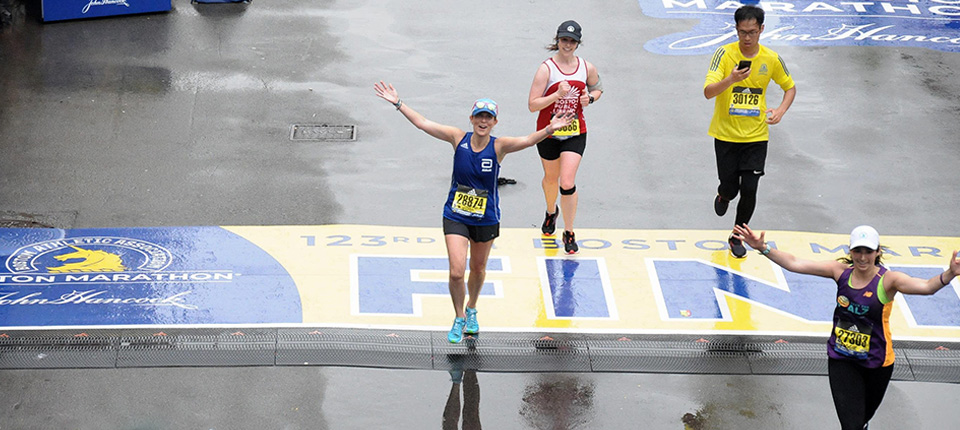Understanding Post-Marathon Recovery: Mental and Emotional Strategies
Keyword: Post-Marathon Recovery
Completing a marathon is an extraordinary achievement, and the statistics speak for themselves—only 1% of the global population has successfully crossed the finish line of a 26.2-mile race. After immense preparation, countless training hours, and determination, you finally reach that elusive finish line. However, the question that often lingers is, “Now what?” Transitioning from the intense focus of marathon training to everyday life can lead to unexpected emotional responses, collectively known as post-marathon blues.
Post-race emotional challenges can resemble the slump many experience after significant life events, such as holidays or vacations. The routine of training creates a unique rhythm for both your body and mind that can be disorienting to abandon. As Dr. Beth McQuiston, a neurologist and medical director at Abbott, notes, this phenomenon is influenced by brain chemistry. The dopamine rush experienced at the finish line, along with endorphins cultivated through training, can quickly diminish, leaving runners feeling bereft. “It can feel like pulling the plug on the neurotransmitter sink,” McQuiston explains. This speaks to the importance of acknowledging emotional recovery as much as physical recovery.
1. Embrace Your Achievement
No matter the outcome of your marathon experience, the fact remains that you have completed a marathon. Congratulations! Celebrating this accomplishment is crucial for both your mental and emotional health. Pam Nisevich Bede, a 26-time marathon finisher, warns against the “mental cliff” that can follow a race. She advises patience and understanding as you navigate these feelings. Cherish your victory by revisiting race-day photos, sharing your journey with friends, or documenting your experience in a blog.
2. Grant Yourself Compassion
Not every marathon experience meets the expectations set during training. If your race didn’t align with your goals, whether due to time constraints or injury, it is essential to take a step back and show yourself compassion. Olympic marathon runner Liz Yelling recounts her disappointment during the 2008 Beijing Olympics when an injury disrupted her hard work. “I had to force myself to put it in perspective—there’s so much more happening in the world,” she recalls. Remember, your self-worth transcends your performance on the race day.
3. Diversify Your Interests
Rather than immediately jumping back into rigorous training, consider exploring alternate interests that allow for mental relaxation and rejuvenation. Nisevich Bede suggests engaging in low-impact activities, such as swimming or even arranging flowers, to diversify your routine. Dr. McQuiston echoes this sentiment, advocating for hobbies, leisurely meals, or reconnecting with acquaintances that may have been sidelined during training. Engaging in new activities not only helps with mental recovery but also elevates mood by boosting dopamine levels.
4. Find Joy in the Goal-Setting Process
The journey of marathon training is often more fulfilling than the race itself. According to Yelling, goal-setting is a continuous process without a definitive endpoint. Emphasizing this principle can help maintain motivation post-race. This might be the perfect time to tackle that DIY project you’ve delayed or explore learning a new language. Focus on setting fresh goals outside of marathon running to invigorate your spirit and maintain a sense of accomplishment.
5. Connect with a Community
The importance of community can never be overstated, especially after achieving something as monumental as finishing a marathon. Engage with fellow runners through online forums or local running clubs. Sharing experiences, thoughts, and feelings about the race can provide emotional support and validate your experience. Remember, you are not alone in feeling this post-race emotional shift. Connecting with others can help normalize your feelings and create avenues for encouragement.
6. Establish a New Routine
With the marathon behind you, it may be beneficial to establish a new routine that does not overly focus on running. Incorporating a balanced schedule that allows for both relaxation and moderate physical activity can ease the transition from marathon training to regular life. Dr. McQuiston suggests adding activities that you find enjoyable, mixing in regular social events, or simply taking leisurely walks to maintain movement while allowing time for recovery.
7. Consider Professional Guidance
If feelings of post-marathon blues persist and significantly impact your daily life, seeking professional support from a mental health expert may be advantageous. Understanding the emotional toll of rigorous training and competitive running can help build effective coping strategies tailored for your experience. Remember, there’s no shame in seeking assistance; it’s a valuable step toward holistic recovery.
In conclusion, navigating post-marathon recovery encompasses more than just physical rehabilitation. Understanding the emotional and psychological aspects can lead to a holistic recovery journey, ensuring that you not only reflect on your achievements but continue to explore personal growth and satisfaction beyond the finish line. You’ve accomplished something remarkable—now, embrace the next chapter with open arms.
